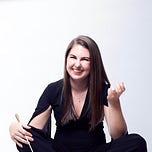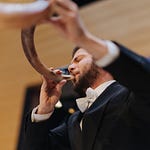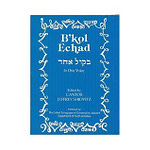Several weeks ago, I wrote about how Maestro Itzhak and Toby Perlman used intentional, hierarchy-moderating techniques in order to design a humane and nurturing classical music program, as well as how this intersects with humane, interpersonal, and artistic values of Jewish communities. This week, I am honored to dive deeper into the intersections of the worship world and the music world by sharing the work of a wonderful colleague, Karen Ní Bhroin.
Karen is an emerging leader in the world of classical conductors, having recently debuted with the London Symphony Orchestra and is returning to conduct the Royal Philharmonic Orchestra, BBC National Orchestra of Wales and Manchester Camerata having made her debut with them all last season. But in addition to being an accomplished artist with a growing list of major orchestral engagements, Karen is a fantastic coach for new assistant conductors, who must meet the wide-ranging demands including donor development, community programming, education, arts administration, and “other duties, as required.” In order to help other young conductors have success in these broad roles, Karen developed a podcast called And Other Duties: The Life of an Assistant Conductor, in which she talked through the very real challenges of assistant conductorship with other collaborative colleagues in the conducting world.
I first encountered Karen while she was a masters student at Kent State University and serving as assistant director of the Akron Symphony Chorus. I originally took note because I wanted to collaborate with her on one of my programmatic bucket list items - a Yiddish-Irish pub sing.1 Karen grew up in the rural town of Farns Village in County Wexford, and, as I learned in our interview, was born into a whole world of traditional Irish music and dance. While we missed the chance to collaborate while she was in Akron, Karen generously sat down with me this past fall for this special interview on music, leadership, and community.
After listening to Karen’s podcast about assistant conductorship (which I highly recommend), I couldn’t help but notice parallels with the role of the cantor. Whereas our graduate training often focuses on (or at least privileges) musical artistry and depth, the reality of the workplace involves an incredible breadth of “other duties” which can largely supplant the musical focus of the role. The cantorate has a long history of these factotum-like tendencies dating back to the medieval period (and re-emerging in our own day). But before Karen, I had no idea that this was also a struggle in the classical world as well.
In this week’s Beyond the Music podcast (my first ever), I talk to Karen about her village upbringing with traditional Irish music and how that world relates to the grander, more formal world of classical conducting that she now inhabits. We also discuss leadership, arts administration, and how to create community. I was struck by Karen’s insight, authenticity, and good humor, and found her wisdom worthwhile not only for conductors, but for all organizations (including synagogues) promoting good teamwork and community-driven music. Give her a listen — and if you’re in Ireland or the UK, catch her on the podium.
I premiered this bucket-list program last year in Rochester, NY. It was a blast. More to come.








